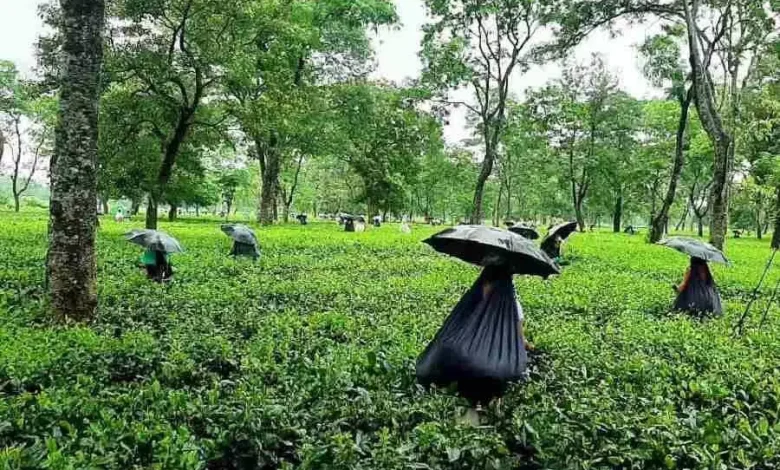Bengal government: Developed guidelines to ban the use of banned chemicals in small tea industry

West Bengal. The Mamata Banerjee government has prepared a draft SOP (standard operating procedure) to prevent the use of banned chemicals in small tea gardens. A few months ago, small tea growers in north Bengal – around 10 lakh people are associated with the sector – were facing a crisis as bought-leaf factories (BLFs or standalone tea processing units) stopped buying tea leaves from them.
The move was taken following a directive from the Tea Board. The directive, issued in compliance with FSSAI (Food Safety and Standards Authority of India) regulations, states that if banned chemicals are found in any tea sample at any BLF, the concerned BLF will be held responsible.
“Since the BLFs buy tea leaves from growers and they have no information whether farmers use banned fertilisers and pesticides or not, they stopped buying tea leaves,” said a tea garden owner based in Siliguri.
In such a situation, the growers approached Chief Minister Mamata Banerjee. On April 3, Mamata, who was staying at a private resort in Chalsa, Jalpaiguri for campaigning, assured the tea growers that the state government would ensure that they did not face any problems.
Eventually, the BLF resumed buying tea leaves from tea growers.
“Now that the Lok Sabha elections are over, the state government has prepared a draft SOP and a roadmap on how the use of chemicals banned in the tea industry can be completely stopped in small tea gardens,” said Bijaygopal Chakraborty, president of the Confederation of Small Tea Growers Associations of India (CISTA).
On June 7, the principal secretary of the state’s Industries, Commerce and Enterprises department drafted the SOP, which was prepared in consultation with state government departments and stakeholders.
The letter mentioned that a district-level review committee comprising representatives of small growers, BLF, state agriculture department and the Tea Board may be constituted to regularly review the situation.
In addition, training on food safety may be organised for growers. Also, growers should buy fertilisers and pesticides only from licensed shops and avoid buying any of the 20 banned chemicals,” a source said.
Pesticides should be strictly used as per the plant protection code issued by the Tea Board. “The state agriculture department can ban the sale of banned chemicals for the tea sector in Bengal’s tea-growing districts.
The state has around 50,000 small tea growers who contribute to nearly half of Bengal’s total tea production.
“The Tea Board in collaboration with the agriculture department should organise awareness camps to educate growers as well as those selling fertilisers. Pamphlets in local languages containing a list of 56 chemicals approved for use can be distributed among growers,” the source said.
The letter also recommended that adequate infrastructure for testing tea samples at optimum levels should be developed in tea-growing areas.
“This will reduce the chances of processing or selling tea containing banned chemicals. We welcome this move of the state and will extend all possible cooperation from our side, the SISTA president said.





